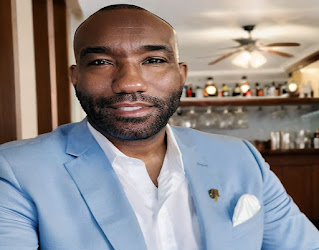Sustainable Strategies: Larry Savage Jr.'s Insights on Industry Sustainability
In the bustling corridors of industry, where machines hum and supply chains weave intricate patterns, Larry Savage Jr. stands as a beacon of wisdom. His insights on sustainability transcend mere corporate jargon; they resonate with the heartbeat of our planet. Let us embark on a journey through his unique perspective, where innovation dances with responsibility, and profit harmonizes with purpose.
1. The Urgency of Sustainability
Sustainability isn’t a buzzword—it’s a
necessity. Larry Savage Jr emphasizes that businesses must recognize their role
in safeguarding the planet. From reducing carbon emissions to minimizing waste,
sustainable practices are no longer optional; they are fundamental to long-term
success.
2. Holistic Approaches
He advocates for holistic approaches to
sustainability:
Supply Chain Optimization: Larry Savage Jr
believes that optimizing supply chains is pivotal. Efficient transportation,
reduced energy consumption, and responsible sourcing contribute to
sustainability.
Circular Economy: Moving beyond linear
production models, a circular economy focuses on reuse, recycling, and
minimizing waste. Insights from Larry Savage Jr Alabama on PromotingSustainability in the Industry He encourages businesses to adopt
circular practices.
3. Data-Driven Decision-Making
Industry sustainability relies on data. He says
that data-driven decision-making is the foundation. By analysing energy usage,
emissions, and resource consumption, companies can identify areas for
improvement. Advanced analytics enable targeted interventions.
4. Collaboration and Transparency
Sustainability transcends organizational
boundaries. He stresses collaboration among stakeholders—suppliers, customers,
and regulators. Transparent reporting ensures accountability. He believes that
sharing best practices and lessons learned accelerates progress.
5. Energy Efficiency and Renewable
Sources
His vision aligns with energy efficiency.
Industries must transition to renewable energy sources. Solar panels, wind
turbines, and geothermal systems reduce reliance on fossil fuels. It encourages
businesses to explore innovative solutions.
6. Resilience and Adaptability
Sustainability isn’t static. He emphasizes
resilience and adaptability. Larry Savage Jr Alabama: Understanding theCore Duties and Responsibilities of a Logistics Expert Companies must
anticipate climate-related disruptions, supply chain shifts, and regulatory
changes. He advises building flexibility into business models.
7. Cultural Shifts
Sustainability requires a cultural shift. He
believes that organizations must instill eco-consciousness in their workforce.
Training programs, awareness campaigns, and employee engagement foster a
sustainability mind.
8. Eco-Friendly Infrastructure
Warehouses and distribution centers are
pivotal hubs in the supply chain. He advocates for eco-friendly infrastructure.
Small steps—such as switching to LED lighting, adopting solar power, and
optimizing heating and cooling systems—can yield substantial energy savings.
Sustainable buildings not only benefit the environment but also enhance
operational efficiency.
9. Circular Economy Principles
Larry champions circular economy
principles. Instead of the traditional linear model (produce, use, discard),
businesses should focus on reuse, recycling, and repurposing. He encourages
companies to explore closed-loop systems, where waste becomes a resource. From
packaging materials to product design, circular thinking fosters
sustainability.
10. Collaboration and Transparency
Sustainability is a collective effort. He underscores the importance of collaboration across the supply chain. Suppliers, manufacturers, distributors, and retailers must align their sustainability goals. Transparent communication ensures that everyone is on the same page, sharing best practices and addressing challenges. He advices: Forge partnerships based on shared values.t.
Larry’s Call to Action
As industries navigate the path toward
sustainability, he leaves us with a call to action: “Embrace sustainability not
as an obligation, but as an opportunity to create a better world—one where
business thrives alongside nature.”




Comments
Post a Comment